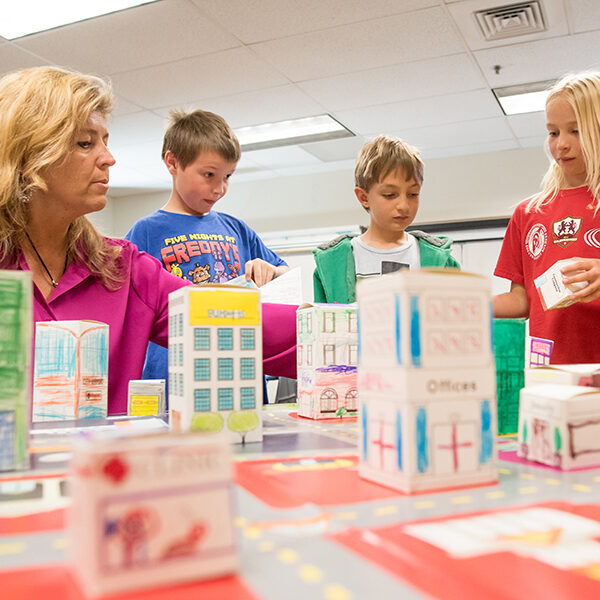
Sometimes it can be difficult to convey the value of ecosystem coordination. As I reflect on the origin and evolution of Open Up Resources, I realize that the success of Open Up provides a great example of how our work as an ecosystem coordinator at The Learning Accelerator (TLA) created an important and powerful impact. It has been tremendously exciting to watch the growth and advancement of Open Up Resources, in particular the recent announcement that its middle school math curriculum, developed in partnership with Illustrative Mathematics, had received the highest score to date from EdReports, an independent nonprofit that reviews K–12 curricula for standards alignment and quality. As research increasingly indicates the crucial role of curriculum for student learning outcomes, it is wonderful to witness the incredible demand for and implementation of this new model of instructional materials.
In our early work at TLA, we identified barriers to blended learning as well as ecosystem gaps. One gap we heard about repeatedly from educators and leaders was the lack of high-quality, standards-aligned instructional materials that would enable deeper learning, critical thinking, and effective problem solving as envisioned by new college and career standards. We understood through conversations with leading organizations and states that open educational resources (OER) had the potential to fill this need and offer districts a better option for instructional materials. We saw enough promise in this idea that we decided to act as the initial funder and incubator for the K-12 OER Collaborative, Open Up Resource’s predecessor. We dug into this opportunity and developed a framework, together with a group of state and nonprofit leaders, for how OER could offer school districts a better, faster, and less expensive option for instructional materials. It was evident that without TLA, the framing for the project and the project itself would not have moved forward because everyone else in the room had other full-time commitments.
We spearheaded the development of a rigorous Request for Proposal (RFP) for developing the course materials, which included the most highly regarded rubrics for instructional quality such as Achieve’s EQuIP and Student Achievement Partner’s IMET. TLA received extensive input from the member states and other organizations, which resulted in a well-devised and thorough RFP. The RFP process resulted in the selection of Illustrative Mathematics to develop the initial instructional materials, which are now receiving much praise and positive reactions from educators and students.
We saw the possible impact of high-potential innovation and acted as the lead coordinator to push forward an idea which had been percolating within the OER/Creative Commons community. In turn, we were able to take this innovative idea to scale by building a set of key partners among states, districts and nonprofits. We were willing to test and iterate through the RFP process which resulted in the selection of Illustrative Mathematics as the selected vendor. We also helped secure funding from the Hewlett Foundation, and other foundations interested in improving instructional materials, to bring the project to scale, and provided tenacious leadership. And now, Open Up Resources is positioned to achieve the goals TLA set out in that initial convening back in 2014: provide learners and educators with high-quality, low-cost open curricula that students and teachers find engaging. As hundreds of districts use Open Up’s materials, and more materials will be launched in the years to come, we are extremely proud to have played an essential role in creating an organization which is providing all students with equal access to rigorous, standards-aligned materials, while easing adoption by districts.

